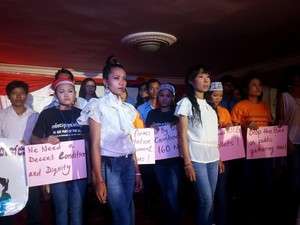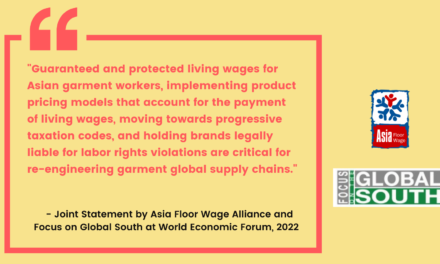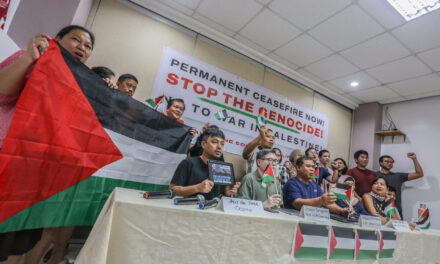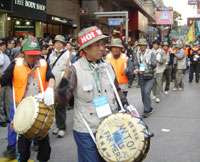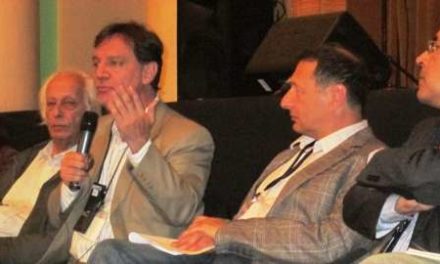About 300 garment workers, NGO staff, civil servants and media staged a “fashion show” at the United Sisterhood Alliance-Worker’s Information Center (US-WIC) in Phnom Penh on May 25, called “Beautiful Clothes, Ugly Realities”.
As the Cambodian government still bans its opponents from using Freedom Park for protests, the fashion show was seen as a new, creative way of getting across our message.
Realising that if they are silenced by fear and don’t take action, there is no possibility of change for in their lives, Cambodian garment workers confidently took to the catwalk carrying giant US$100 notes which they then tore up.
They then placed the torn strips into different boxes labelled “food”, “water”, “electricity”, “utility”, “transport” and “health” to make the point they are not paid enough to survive.
To meet their basic needs and to support their families, Cambodian garment workers have to work long hours of overtime.
In another scene, the garment workers re-enacted this violent suppression, which took place on Veng Sreng Boulevard in January. A garment workers’ strike for a minimum wage of $160 a month was violently suppressed by the Cambodian government. Four workers were shot dead.
Just two days before the shootings, the government raised the minimum wage for textile and garment workers from $85 to $100 a month still not enough to live on. Cambodian garment workers produce hundreds of thousands of items of clothing each day for export to the US, Europe and other parts of the world. Just two big brand companies make billions of dollars profits from their work and pay their CEOs huge salaries and bonuses.
The CEO salaries of just two of these companies, GAP Inc and H&M, are equal to the combined wages of about 700,000 Cambodia textile and garment workers. At a meeting of garment companies, global unions and government officials at the Cambodian government’s “Peace Building” on May 26, there was no detailed discussion, commitment to resolve the dispute, or respond to the demand for a minimum wage of $160 a month. There was just more avoiding of responsibility and blaming workers.
There was no commitment from any of the parties that would deliver on promises to ensure job security, fair wages and decent working and living conditions for garment workers. The final message from the garment worker’s “fashion show” was that they want fair wages for fair work not bullets.
[Ros Sokunthy is an activist for Focus on Global South-Cambodia, a partner of the United Sisterhood Alliance.]

